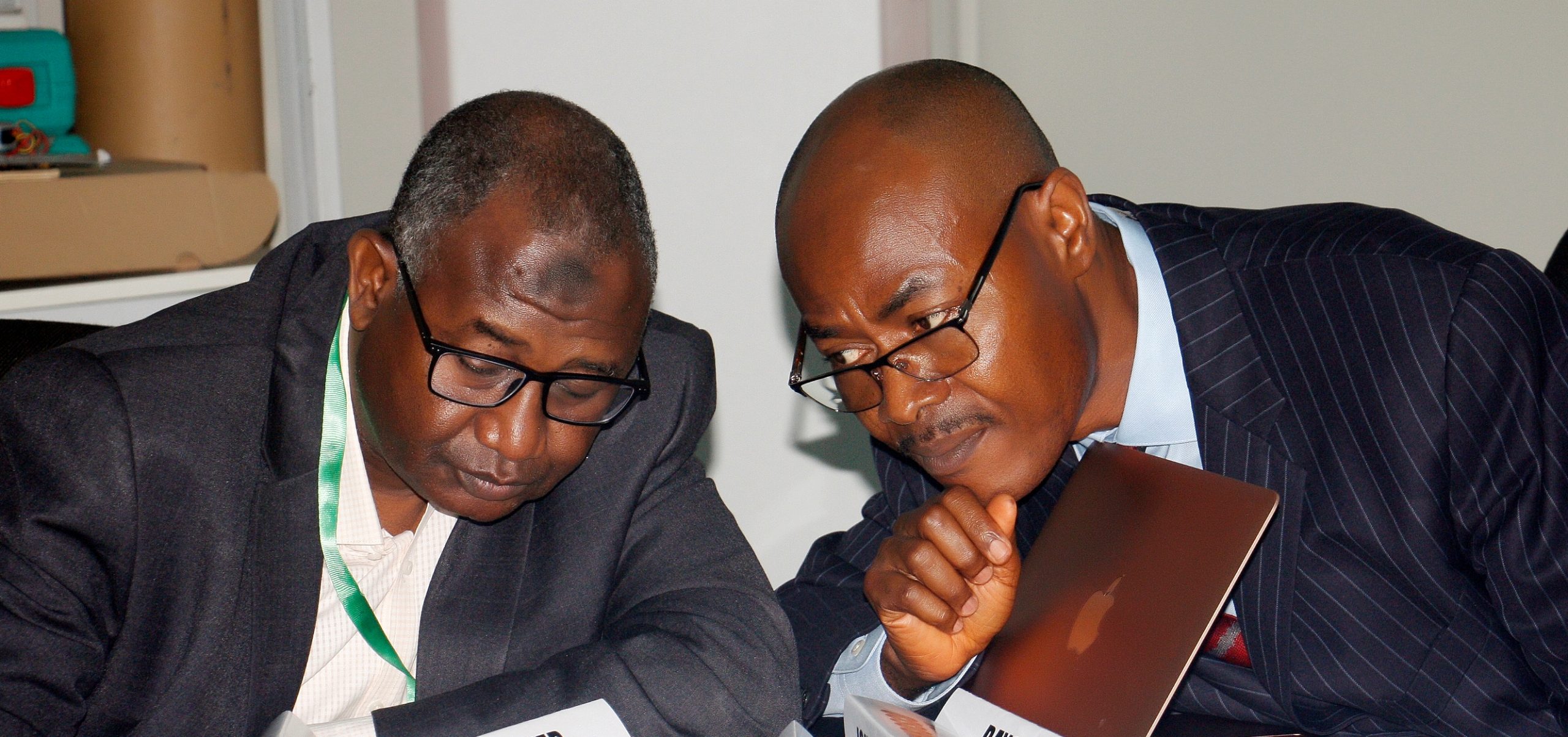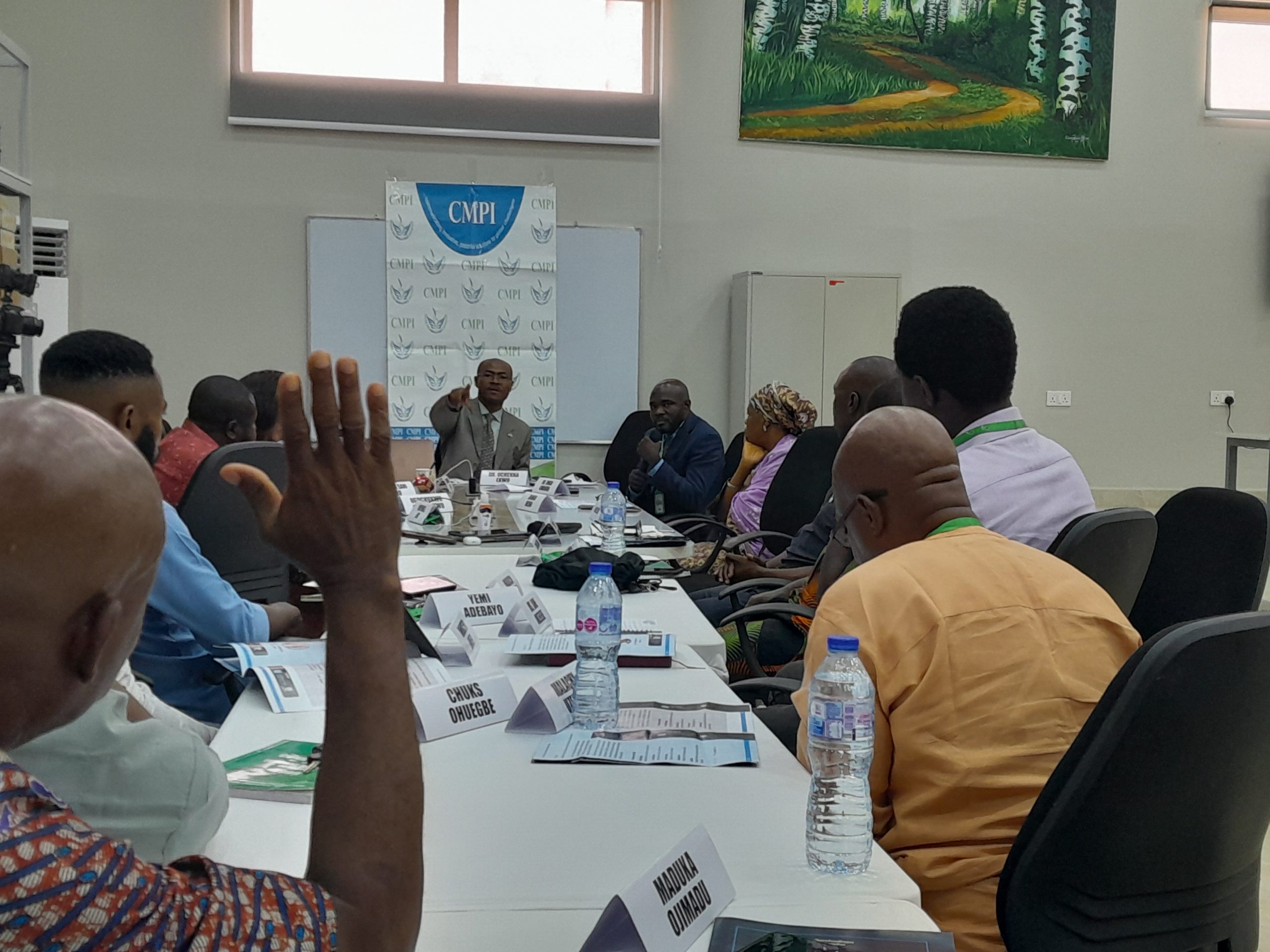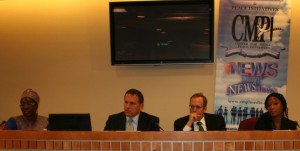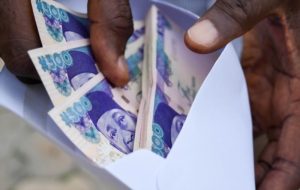At the launch of the Peace Journalism and Consolidation of Democracy Project in Nigeria, top editors and publishers explored the prospects and challenges of media’s capacity in building and sustaining peace and a culture of conciliation in the society. In one of the presentations, former National President of the Nigeria Union of Journalists, Mallam Sani Zoro spoke on wide ranging issues on the need for media practitioners to embrace peace journalism even for self preservation. Excerpts:
Let me say how happy and very excited I am to be part of this dialogue. As former servants of Nigeria Union of Journalists in the 1990’s some of us were the symbols and flag bearers of the movement that believed that journalism should have a heavy dose of social responsibility content. Our movement or group of concerned journalists across media organizations all over the country while looking to come to power, I emerged as the national president of the Nigeria Union of journalists. Our slogan during the campaign was for “socially relevant Nigerian journalism.” What did we mean? We’re of the opinion that journalism and journalism actors should not remain neutral in so many aspects of life including poverty and issues that affect the lives and livelihoods of the citizens of Nigeria. You would agree with me that’s why journalism is a universal profession. Every country has its own journalism that is based on its history, its preferences, its priorities, its psyche and so on.
I have tried to find out any traces of peace journalism in Nigeria and I’m afraid I cannot lay my hands on anything. Is there any journalism in the context of the Nigerian media, whether traditional or new media (digital or print or electronic media) that is peace oriented? What do I mean by peace journalism or traces of news coverage that would portray this concept of journalism?
Almost all media platforms or most of the media platforms especially now that we are in the digital era convey messages and images of the happenings so that you can see what is happening in real life including civil conflicts or wars. For example, Sudan erupted last week (April 2023) and there is now an ongoing civil war between two factions of the military – the Rapid Response Force and the main military. What is supposed to be the role of journalists as well as the media in Sudan? The role of the media is to convey what is emerging as tragic as it is but as objectively as possible and we have seen how the skies of Khartoum have been lit up by bombs. We have seen military planes cycling and dropping bombs. The activities of the media in conveying these images; this news of what is happening to the society as well as commentaries by actors, partisans, and other citizens anywhere with similar conflicts is what is referred to as the media translation of conflicts in political communication. The mediatization of conflicts is how the media is unconsciously brought into the conflict itself. The media becomes part of the conflict in a partisan manner and professionally as it discharges its work. A typical example was during the Gulf War in 1990. For the first time, CNN was invited to cover the story and we had the definition of embeds – that is journalists that were embedded with troops and these journalists were on board the military ships, helicopters, and so on that went to cover the war. Would anyone expect journalists that were embedded with American troops to report against American troops? It’s impossible because they were aided and facilitated by these troops, and the embedded reporters depended on the information the American troops provided to them because they were not able to cross over to Iraq to hear the perspectives of Iraqis and so on and so forth. This was what happened or is happening everywhere and that is what drags journalists and the media into conflicts.

Any legal frameworks for peace journalism practice?
In discussing peace journalism, are there any legal frameworks that provide for, give power or support the substance of this aspect of journalism? Let me attempt to give you the ones that I can remember and I’m sure you will update me because I’m sure some of you are tempted to say oh this is an ancient practitioner. Let me refresh our minds about the mandates of one of the agencies of the United Nations – the United Nations Educational Scientific and Cultural Organization (UNESCO) that formed the building blocks of the curriculum for mass communication studies in universities and colleges. So, all members of the United Nations are supposed to share universal perspectives on education, science, and culture. Journalism as a body of knowledge has communication, sociology, and all sorts of things as well as education is under the universe for oversight.
So, in 1983 UNESCO provided a platform for regional organizations of journalists from Latin America, Arab countries, the Russian Federation, and from all over the world in Prague to draft what they called the International Principles of Ethical Practice of Journalism. These are guidelines on how journalism should be practiced as a matter of philosophy and social responsibility. One of those principles says journalists and their media should not support or should not lend support to conflicts or wars because conflicts lead to human tragedy and destruction. So, this is a legal framework. This is the first that I can remember because it is either a convention or protocol or an agreement between journalistic bodies or a consensus that journalists and their media should not lend support to conflicts or wars because they lead to human tragedies and destruction.” Ironically, media organizations are not spared by conflicts and wars. During the #EndSARS protest in Lagos and other parts of the country, you could remember that protesters attacked some media organizations.
So, the media is not insulated from circumstances of conflicts as well as wars. In fact, even for the purpose of self-preservation, journalists probably need to be aware of the consequences of supporting policies that could lead to conflicts. One of my great editors, Mr. Lewis Obi once theorized that the media is supposed to mediate in situations of conflict, and I think as a noble profession this is a very good postulation.
Beyond the existing set of regulatory frameworks developed by journalists who wanted to regulate themselves to put standards and values for the practice of the profession towards upholding the social responsibility role to the society, there is the Rome Statutes that emerged in the 90’s which established the International Criminal Court (ICC) – an intergovernmental organization and international tribunal seated at The Hague, Netherlands. Founded in July 2002 to prosecute those accused of war crimes, crimes against humanity, and genocide, ICC specifically punishes three offenses:
- Incitement to genocide
- Act of genocide
- State Aggression
The first one is probably targeted at the media and politicians. To that extent, it is a legal mechanism that supports peace journalism. The court punishes offenses related to genocide and state aggression. In my view, genocide is probably targeted at media actors and politicians. Consequently, many wonderful journalists in Ugandan, Kenya, and the Democratic Republic of Congo faced various jail terms at The Hague for incitement to genocide. I recall that a Kenyan radio host, Joshua Sang was indicted by the International Criminal Court at The Hague. He was accused of hate speech and organizing killings during the clashes that marred the 2007 presidential elections. Another Kenyan journalist – Walter Barasa was arraigned before ICC in October 2013 for allegedly trying to pay off witnesses in the crime-against-humanity case against the country’s then deputy president, William Ruto at the time.
This means that a journalist has legal exposure if he/she used the media to incite conflict in a manner that would be interpreted to mean genocide in which many people would be killed. A journalist could be dragged to the International Criminal Court at the Hague because of what he/she said either as a commentator or as a purveyor of information, an interpreter through radio broadcasts or comment through the newspapers, all the careless postings of your own opinion on digital media because you are a popular Blogger in your country.
Specifically, we must recognize that the Law of Armed Conflicts (LOC) marks a major shift from the past. The law is a universal body of law that regulates the conduct of war (jus in bello meaning justice in war) notably the protection of individuals who are not involved in the conflict. According to the law, if, in the conduct of war, if a commander asked his juniors to go and destroy this or that; go and take prisoners of war who have already surrendered; go and shoot; use these bombs to kill two people and all these kinds of illegalities, the commander would be responsible. But now the new law of armed conflict, if the commander asked you to engage in illegality in the conduct of war, you should use your sense.
For instance, if your commander asked you to use a missile to attack this building, you should know that it is contrary to what is called the use of disproportionate force. I’m sorry; you cannot be a zombie any longer to say oh the commander asked me to do this. It’s an act of genocide simply because the commander said go and attack these people because they are harmless. Remember always that some of these instances of conflict are more prevalent in Africa because of the continent’s multiethnic, multi religious society where almost everything is based on identity.
Peace Journalism and National Security
This is why peace journalism must be of interest to us. We have that right as Nigerian journalists, the power, and the obligation to reflect on these matters. I think it is important to enrich the curriculum content of journalism and media studies to include conflict resolution, mediation, and prevention. We need this much more than anything because if you did a content analysis of the media, we are not there at all. Our news media just like the media in other parts of the world have become weapons of war. Just take a look at the content of newspapers in Nigeria, from beginning to the end and those of television and radio stations. Just do a dispassionate analysis, remove yourself; just be a journalist; just be a reporter and say let me watch what my colleagues are saying, and you will see there are parading politicians who keep threatening us and the country. Keep in mind that so many of these politicians are liars and criminals and you know that the relationship between journalists and politicians all over the world has always been that of friendly enemies (frenemies). Yes, politicians don’t like us, we don’t like them, but we must coexist. It is just like in a marriage of convenience and yet journalists give politicians the platform to threaten society.
I believe journalists can influence a review of the curriculum for studies in mass communication. The academia should take this up starting with the International Institute of Journalism that teaches the issue of national security, peace journalism, and related subjects. About two years ago at a lecture organized by the Nigerian Union of journalists, I provoked the participants by asking them for the definition of national interest. What is national interest? What is national security interest? It is embarrassing that many journalists do not know the definition of their national interest or national security interest. Is national security the protection of the state interests or a mechanism to protect politicians?
There’s the need for journalists to know a bit about everything to avoid conflicts with security agencies. Journalists need to understand how security agencies and law enforcement agents think because everything is controlled by the state everywhere in the world. Everywhere, the state is superior to everything. For instance, in the conduct of war, the state will pull all the editors of the major media organizations and say: hey editors and publishers, we are going to operate militarily and there is going to be loss of lives and so on because we are going to chase criminals, terrorists, insurgents. We are telling you so that you will not publish. If you publish, the information would leak and our operations would be sabotaged. So, if the enemy got to know that you are going after them tomorrow, they will run away, and we will hold you responsible. There are such understandings between journalists, security, and intelligence professionals.
I do not blame Nigerian journalists entirely for lackluster peace journalism content. Of course, you also need peace actors who will talk about the peace before your office people could preach or wage peace. There are so many people waging war but who are those waging peace? The only people I know as a group that does something like that at every election cycle is General Abdusalam Abubakar, former Head of State and Chairman of the National Peace Committee and his team. Why are all the social cultural organizations – Ohaneze, Afenifere, and Arewa etc. not campaigning for peace on a regular basis? These social cultural groups should be independent and work to protect the people based on their culture, priorities, and aspirations instead of dabbling into politics.
I recommend that training institutions should entrench studies such as peace journalism and security studies because from the agenda of world leaders now, the priority is peace and security. At the 2022 UN General Assembly in New York, the office of Nigeria’s first lady focused on what they called the WPS (Women, Peace, and Security). The role of women in peace and security is a global priority. Consequently, the highest organ of the United Nations says that women are first responders, the victims of rape or kidnapping. In fact, it is their children that will go to war or their husbands that they would lose because they are the ones that will go and fight and get killed; they are the ones that will inhabit the Internally Displaced Persons (IDP) camps; they are the ones that become refugees. So, the UN Security Council says women must be part of the solution. Women have certain skill sets that are distinct to them and they can do better when it comes to intelligence gathering and care.
The Peace Journalism and Consolidation of Democracy Dialogue held at Abuja and Enugu was sponsored jointly by the Center for Media and Peace Initiatives, New York and The Hollings Center for International Dialogue, Washington DC
CMPI’s educational programs provide unique platforms that facilitate discussion around specific subject areas, with the goal of generating new knowledge and understanding, forging, and expanding new international, intercultural, interdisciplinary research networks, and partnerships.







Dear professor Uchenna,
I’m glad that I got to knew you .You are an amazing personality who lives his life with meaning.You are contributing your knowledges ,time and commitment to the people who need your support.Thank you for contributions.keep up the good work.